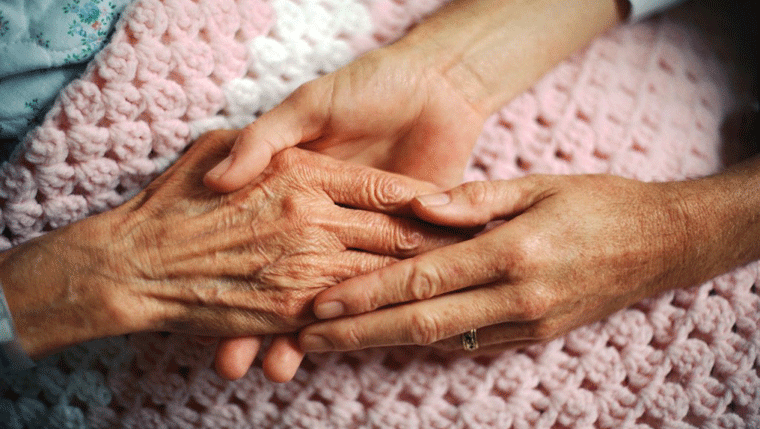Visiting the sick or injured is an act of kindness. Depending on circumstance and relationship, this can be a difficult task. Usually it requires some sort of sacrifice.
Bikur Cholim, Hebrew for visiting the sick, is considered a mandate for our Jewish friends as it fulfills an opportunity for a good deed and to show God’s lovingkindness. Rabbinic writings explain the idea comes from Torah passages of loving one’s neighbor and imitating God, ideas we Christians value as well.
When we call on someone in need or pain, we act as God’s hands and feet in delivering mercy, hospitality, and love. Jesus is often portrayed with the sick, usually healing them. We can be agents of His healing power too - through prayer, anointing or providing physical care with the resources He has given us. What a privilege!
Many of us hesitate in making such personal visits. A common excuse is that we’re too busy. Yes, a visitation takes a sacrifice of time. But there can be other reasons we pause. It can be uncomfortable, require emotional energy, and might even be scary. In weighing these costs, we might ask if this isn’t really the job of a chaplain or pastor. No, it belongs to all of us. He has called us priests and we represent Him in all we do.
Making a visit can cheer and encourage someone. Our support and prayers are beneficial in their healing and comfort. But I think the rabbis show us another reason we need to show up. Bikur, translated as visit, also means investigate, examine or search. A personal visit enables us to identify other needs. Can they get around? Do they have resources for medicine or food?
The Talmud gives an example:
It once happened that one of Rabbi Akiva’s students became sick, but none of the sages went to visit him. Rabbi Akiva, however, went to visit him. Because he swept and cleaned the floor for him, the student recovered. The student said to him, “Rabbi you have revived me!”[1]
The good rabbi would not have known what was needed without showing up. His actions provided what the student needed. In bringing attention to his student, he brought comfort, needed resources - and a model for the other sages who then also began to visit.
Truly visiting means we assess their needs, which can be especially important to those who live alone. Since we all deal with illness differently, a first step would be to simply ask. How can I help? Visiting doesn’t always mean literally sitting with them. God uses all the variety of gifts He’s given His church. Do they need encouragement? A ride? A clean house? Maybe they need privacy and we can support those who are supporting them. We can always pray – and let them know we are praying. Send a card that they can see and be reminded. When we have a community then all of us together can offer support. The cost is divided and the privilege multiplied. Let’s keep our eyes open for those who need a visit.
I was naked and you clothed me, I was sick and you visited me, I was in prison and you came to me. Matthew 25:36
[1] Babylonian Talmud, Nedarim 40a







